
Making Our Churches Safe Spaces For All
An introduction to Creating Sanctuary - by David Kerrigan
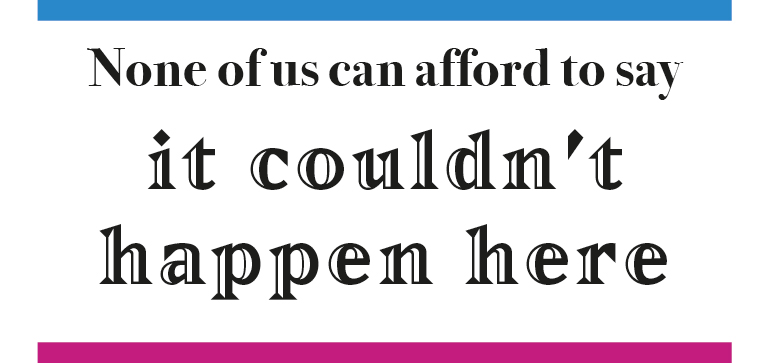 In 2014, a young 14-year old girl in Manchester, Lizzie Lowe, was grappling with her sexuality and told her friends that she might be gay. She was a gifted musician and played the flute in the worship group in the church where she had grown up through Sunday School. But she was worried she couldn’t tell her Christian family, or her church for fear they wouldn’t accept her as a gay Christian.
In 2014, a young 14-year old girl in Manchester, Lizzie Lowe, was grappling with her sexuality and told her friends that she might be gay. She was a gifted musician and played the flute in the worship group in the church where she had grown up through Sunday School. But she was worried she couldn’t tell her Christian family, or her church for fear they wouldn’t accept her as a gay Christian.
Tragically, on Wednesday 10 September 2014, Lizzie hanged herself. Her parents, and her church, were distraught.
In reality her parents, Hilary and Kevin, said that her sexuality would have made no difference to them. Her church too thought of themselves as open and welcoming but accepted that sexuality was not discussed for fear of ‘stirring up a hornet’s nest’.
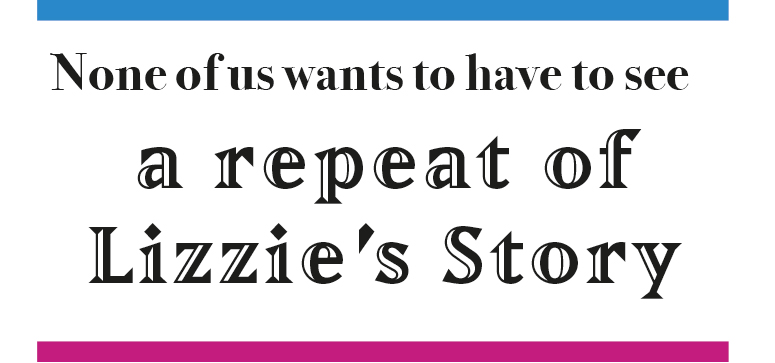 Over the last year I have been working with a group of Christian leaders – mostly Baptists, mostly members of the LGBT+ Christian community – to develop Creating Sanctuary. Kevin and Hilary Lowe and their Vicar, Nick, also feature in this resource.
Over the last year I have been working with a group of Christian leaders – mostly Baptists, mostly members of the LGBT+ Christian community – to develop Creating Sanctuary. Kevin and Hilary Lowe and their Vicar, Nick, also feature in this resource.
We started this work because lives are being lost and harmed in Baptist churches too. Many of the stories in Creating Sanctuary are Baptist stories and we need these to be heard because they are our family. You’ll hear how awareness of being gay started as young as four years old for one person, ten years old for another.
With this background, our aim wasn’t to create a theological resource where the debates about human sexuality and the Bible could simply be rehearsed one more time. Not because theological work isn’t important but because there is no shortage of places where that debate is taking place.
Rather, we wanted to develop a resource to help churches – all churches – to think pastorally about those who are or might be gay in their congregations, now or in the future.
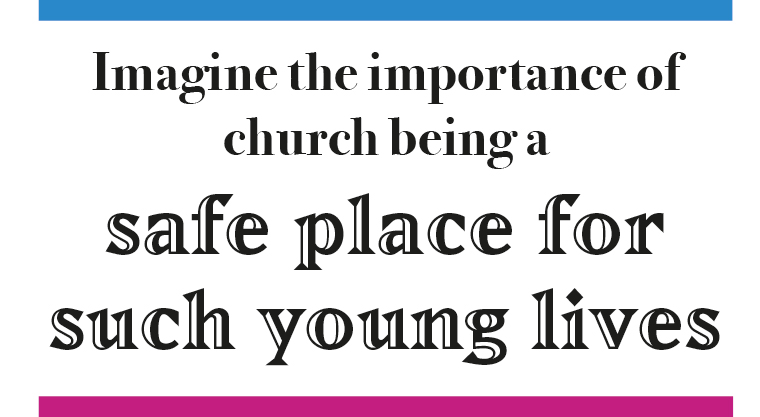 Creating Sanctuary isn’t designed to ask participants to change their minds about same sex relationships. Instead it focuses in session 1 and 2 on how we treat one another, and we give the opportunity to watch or listen to stories from the LGBT+ Christian community. Space is given in session 3 for participants to share experiences they have of relationships or contacts with members of the LGBT+ community and then for people to discuss what they’ve heard.
Creating Sanctuary isn’t designed to ask participants to change their minds about same sex relationships. Instead it focuses in session 1 and 2 on how we treat one another, and we give the opportunity to watch or listen to stories from the LGBT+ Christian community. Space is given in session 3 for participants to share experiences they have of relationships or contacts with members of the LGBT+ community and then for people to discuss what they’ve heard.
In session 4, there is a video-led discussion showing how some familiar Bible passages can help us to think afresh. The tone is gentle, and time is given afterwards to talk about what was shared. In session 5 we ask participants to share ways in which they think a church community can be ‘a safer space’ and finally, in session 6 we have the opportunity to listen to the story of other churches who have already started talking about these things, though it is made clear that for churches to be, and choose to remain, non-affirming, is entirely within the parameters of this resource. The focus is on creating safer Baptist churches.
And because of this focus, it’s important to say that this resource has been externally quality assured and validated through our partnerships with Chester University, NHS England, Public Health England and national safeguarding leaders, all of whom have praised the nature of the resource, especially its facilitator guidance and approach to opening up conversations.
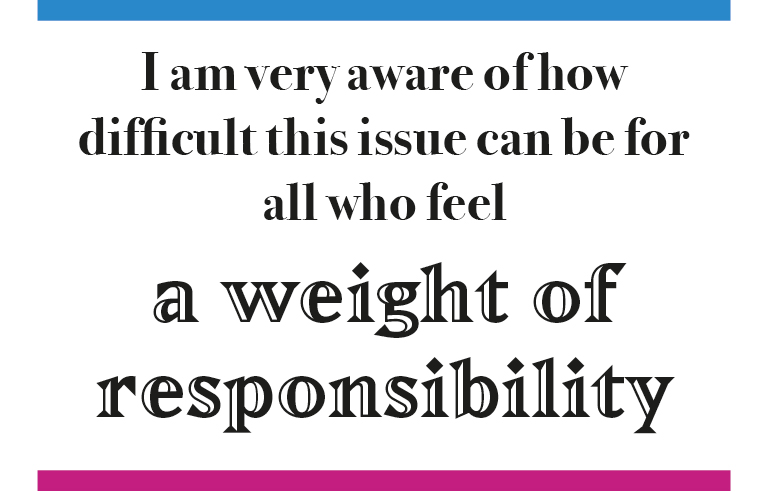 I am very aware of how difficult this issue can be for all who feel a weight of responsibility – to be faithful followers of Christ, faithful to the scriptures and who want to avoid anything divisive in the life of the church. But faithfulness also demands of us that the vulnerable are protected and as you will know, there is a real focus at the moment on our churches’ collective ability to safeguard and protect.
I am very aware of how difficult this issue can be for all who feel a weight of responsibility – to be faithful followers of Christ, faithful to the scriptures and who want to avoid anything divisive in the life of the church. But faithfulness also demands of us that the vulnerable are protected and as you will know, there is a real focus at the moment on our churches’ collective ability to safeguard and protect.
There was a time when my upbringing would have made me less than sympathetic to LGBT issues, but over the years my heart has been transformed by the grace of God revealed in the extraordinary welcome he extends to all, and by getting to know so many LGBT Christians whose faith and devotion inspires me.
None of us wants to have to see a repeat of Lizzie’s story. None of us can afford to say, ‘it couldn’t happen here’. Silence can demand an unimaginable cost.
Creating Sanctuary features in a newly created section of the Baptists Together website that focuses on listening, and listening well. The section is rooted in Jesus’s example of washing his disciples’ feet (John 13: 13-14): to love one another as Christ has loved us compels us to be fully present, and this requires being able to listen to one another. The new section on the website is a space that can enable such a listening process to happen. It features listening resources, insights into missional listening, and perspectives on areas of our shared life where there is pain and disagreement. We are acutely aware that human sexuality is one such area.
Creating Sanctuary is a new resource that aims to foster a process of listening well, hence its inclusion here. However, it is by no means the only resource, nor perspective, and our new listening area seeks to reflect that.
For more information visit: creatingsanctuary.org.uk and 'Listening' section of this website. |
Click here to download a pdf version of this article.
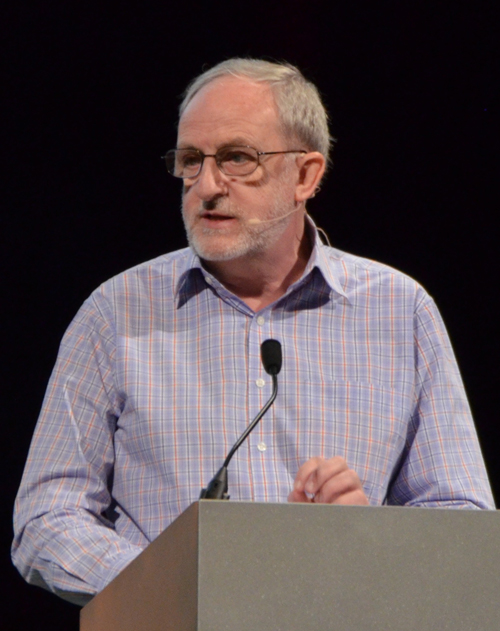
David Kerrigan is a core team member of the Creating Sanctuary team, and is the former General Director of BMS World Mission.
He has been involved in cross-cultural mission work in many countries for 35 years and now, in retirement, remains involved in several important initiatives, like this one.
Illustration: Ricardo Gomez Angel | Jordan Graff | unsplash.com